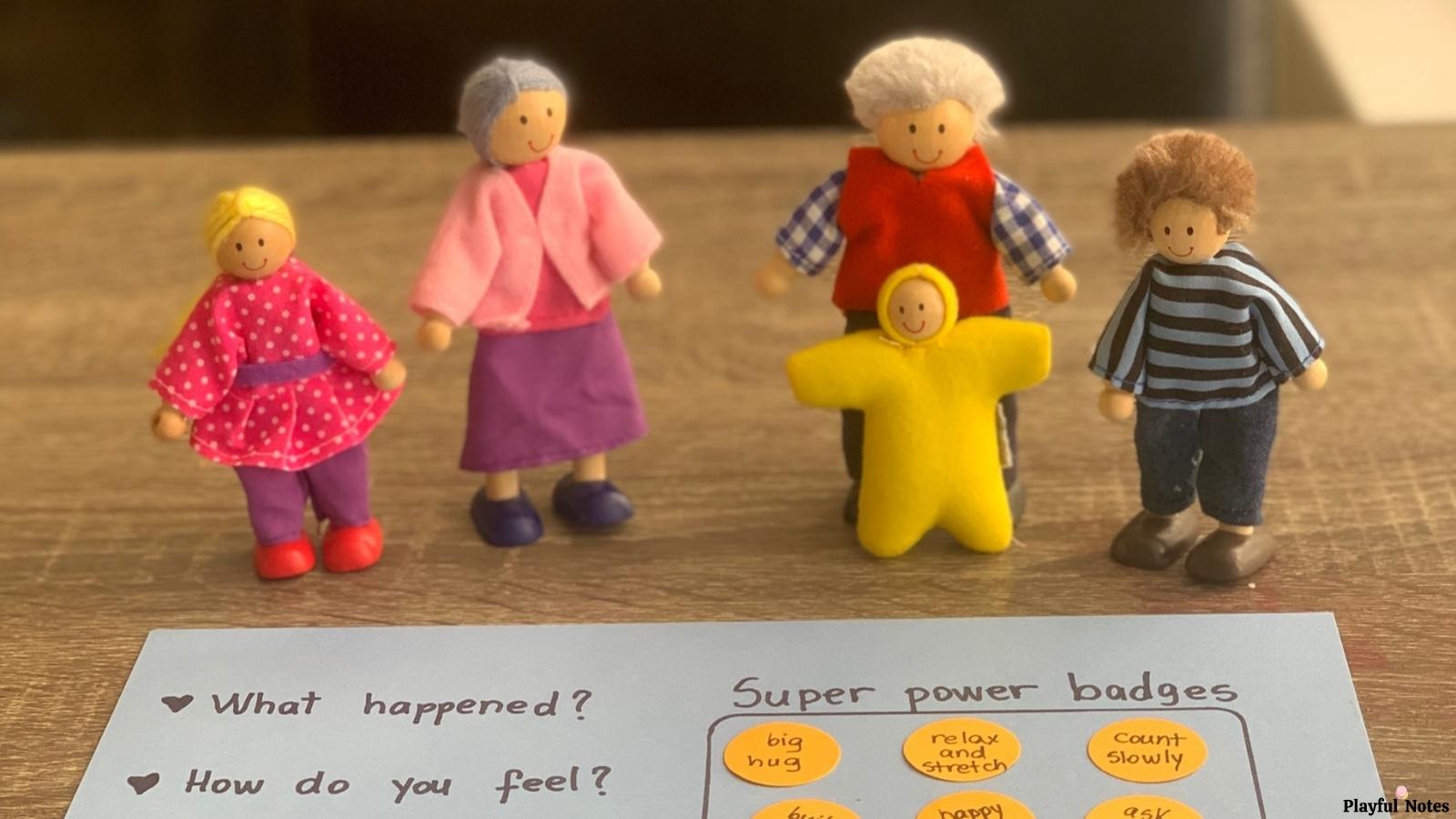This post may contain affiliate links. Read my whole disclosure here.
Inside: Discover the reason why kids have after school meltdowns and check out 5 easy ways to prevent them and to help your child deal with strong emotions.

Things were going great at my son’s new preschool. Or at least that was what his teacher was telling me every day.
But at home things seemed completely different. There were days when my son would come back from school in a bad mood and would pick any reason to start a fight.
He would get upset from apparently silly reasons. He would look at me with an angry face and refuse to do anything I asked. Or he would just have a meltdown that was emotionally draining for me.
I felt both frustrated and helpless. I wanted to understand what was happening and help him.
Behavior is communication and I knew that “decoding” this behavior is the key to helping him. So I started to read more about what triggers these after school meltdowns and looked for solutions to prevent them.
After school meltdowns: What science says about this behavior
Psychotherapists have a name for this behavior: it’s called “after school restraint collapse”. It appears because the child accumulates frustrations during the day or feels overwhelmed by all the things that happened at school.
The child feels the need to release all this stress and let all their frustrations show up. They try to do their best at school and keep all these strong emotions into control but once they get home and feel safe in your presence they let go of all restrains.
Young children are not able to express all these feelings into words. So they often use any reason to vent out all the emotions they have been holding in during the day.
Kids need help to deal with all the feelings that cause their tears and tantrums. Here are some great tips for helping kids deal with strong emotions in a gentle way.
 photo credit: monkeybusiness / depositphotos.com
photo credit: monkeybusiness / depositphotos.com
The good news is that the after-school meltdowns can also be reduced and even prevented with a few easy tips. If you are facing this behavior as a parent, I’ve gathered here some of the best ways to do this.
5 ways to reduce and prevent after school meltdowns
The best strategy to deal with these meltdowns is to make the child feel loved, heard and understood. This will help them express these feelings in a better way and make afternoons more enjoyable for everyone.
1. Make connection a priority
As soon as you pick up the child from school (or they arrive home), start focusing on connection. Let the child know that you are happy to see them and that you have missed them during the day.
Ask them about their day at school. Give them hugs and listen to what they have to say.
If possible put away any distractions (phone, emails, TV) and just spend some time connecting with your child.
2. Make them laugh
Laughter is one of the easiest and most effective ways to relieve stress. You can make your child laugh in many ways: talking with a silly voice, making a silly dance, telling jokes, sharing a funny story.
3. Prepare a tasty snack
Often kids are hungry when they get home and this only makes things worse. So it’s really helpful to prepare a few tasty snacks and enjoy them together as soon as they get home or even in the car on the way home.
4. Make time for play
Children need free play to unwind and relax so make sure to not overschedule the afternoons. Letting them play after they get home is an easy way to boost their morale and prevent meltdowns.
It’s even better if you can join the play! This will make them feel loved and will make the connection between the two of you even stronger. If you are looking for easy ideas to try with your kids in the afternoon check out the Playful Mom Toolkit. It has plenty of ideas that will help you build a happy relationship with your child through play.
 photo credit: alenkasm / depositphotos.com
photo credit: alenkasm / depositphotos.com
5. Avoid overstimulation
The space that surrounds the kids has a great impact on their emotional state. A cluttered house or a loud room with constant background noise will make the child feel agitated and overstimulated.
Reducing the clutter (including the toy clutter) and providing the child with a quiet space (with no TV noise in the background or any other overstimulating noises) are very helpful to allow them to relax after a busy day at school.
What to do if meltdowns happen
Sometimes even if you do your best to prevent the meltdown, it will still happen. This means that the child has a lot going on in his life and needs to let go of the stress.
In this case, try to respond with calm and empathy. Your child needs to feel heard and understood and a gentle response will help them deal with their strong emotions and overcome the fears and frustrations.
You can read more about how to positively react to temper tantrums here: How the deal with tantrums in a gentle way and why this is so important.
I hope that these tips will make things easier for you and will bring more peace to your home in the afternoons!
*** The “Decoding children’s behaviors” series will focus on different behaviors of young children and the real reasons behind them. As a mom, understanding my child’s behavior helped me find better ways to offer him the support he needs and has strengthened our relationship. My hope is that this series will help other parents too!
More from Playful Notes
- 5 ways to reset your mood when you get angry at your kids
- Family Contributions: The best way to promote independence and encourage hard-work
>> Want to remember this? Share these tips to your favorite Pinterest board!

photo credit preview photo: ArturVerkhovetskiy / depositphotos.com




